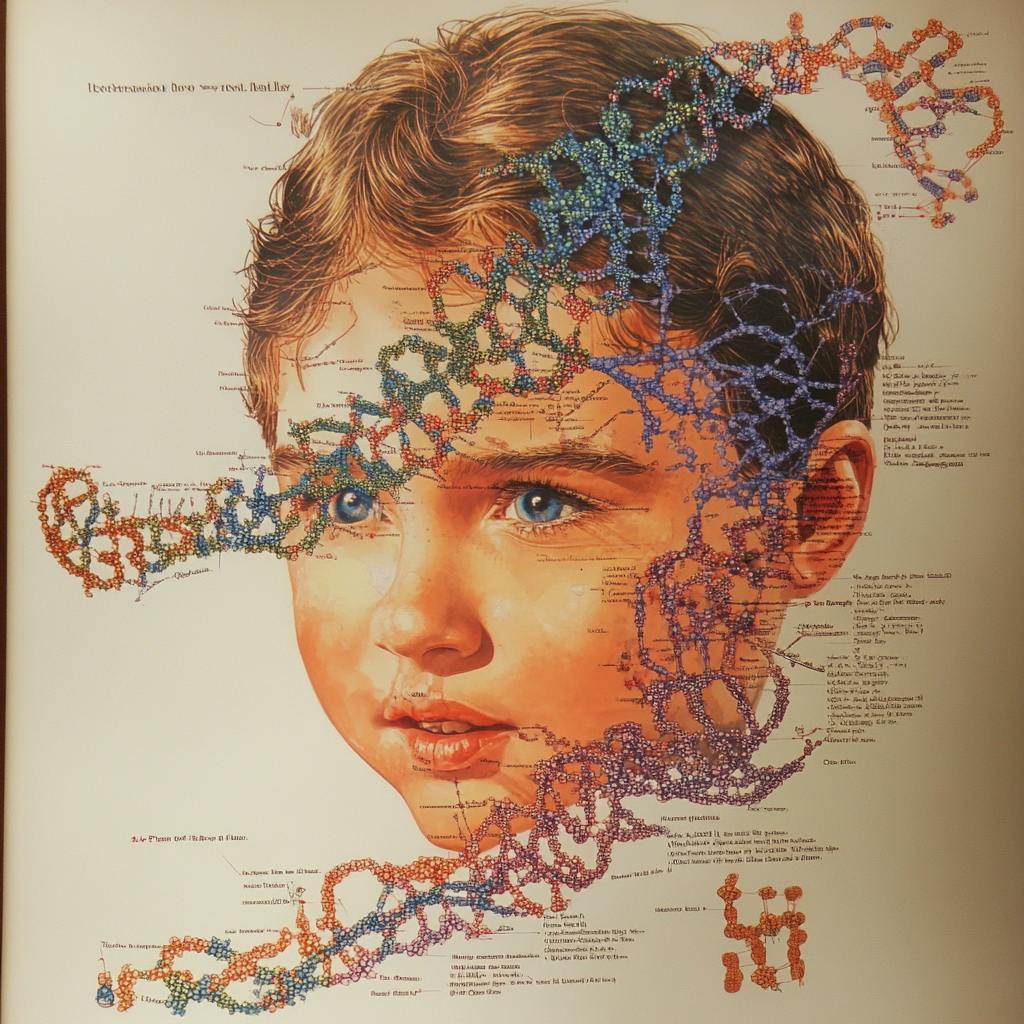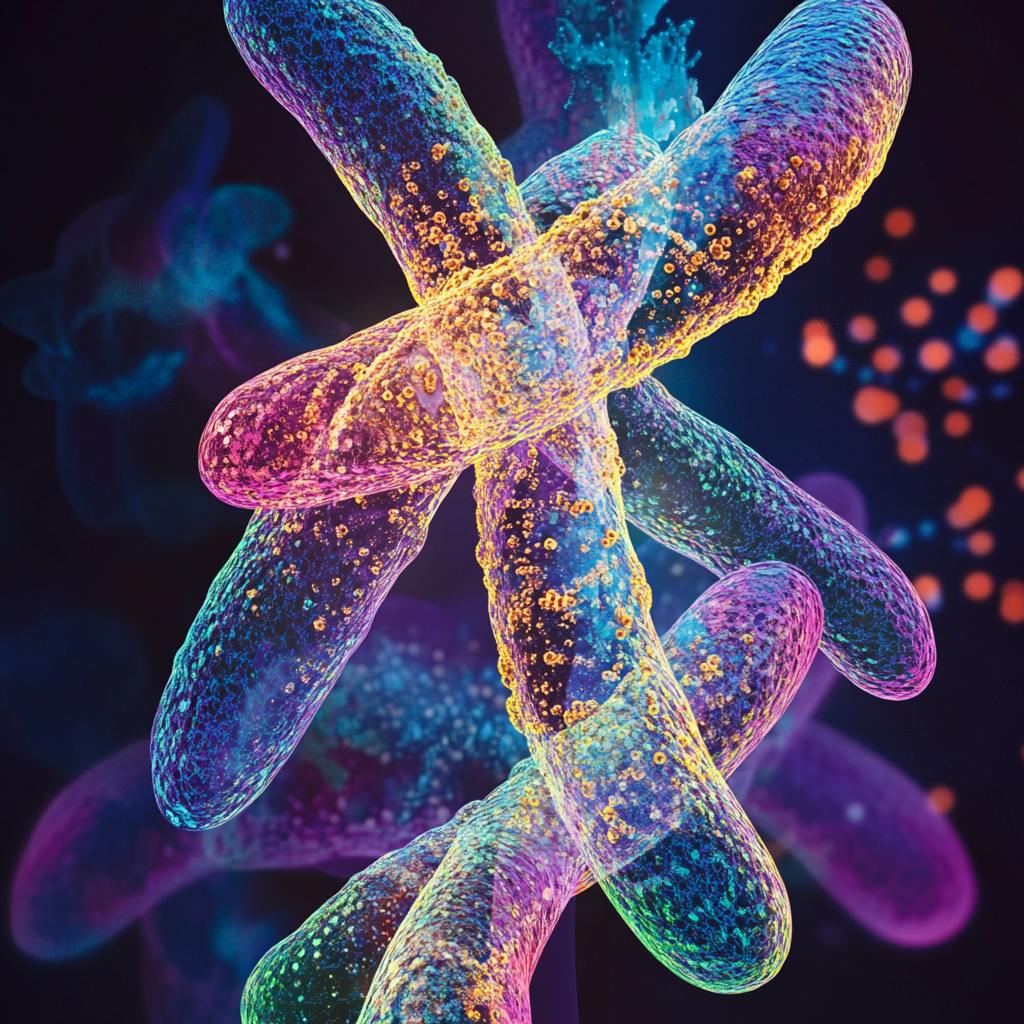Angelman Syndrome (AS) is a rare genetic disorder that affects the nervous system, leading to severe developmental delays, speech impairments, and other neurological issues. For families and individuals affected by AS, understanding the risks and implications of the condition is crucial. This article provides a quick and comprehensive guide to understanding why the risk associated with Angelman Syndrome remains unchanged and what this means for those impacted.

Understanding Angelman Syndrome
Angelman Syndrome is typically caused by a loss of function of the UBE3A gene on chromosome 15. This gene is critical for normal neurological function, and its absence leads to the characteristic symptoms of AS, which include:
- Severe developmental delays
- Lack of speech
- Seizures
- Motor problems
- Happy demeanor and frequent laughter
The Genetic Basis of Angelman Syndrome
Angelman Syndrome is often the result of a genetic mutation or deletion that occurs randomly. The majority of cases are not inherited but occur due to a mutation in the egg or sperm before conception. This spontaneous genetic mutation is why the risk of Angelman Syndrome remains unchanged over time. Understanding the genetic underpinnings is vital for families and medical professionals managing the condition.
The Stability of Angelman Syndrome Risk
Despite advancements in genetic research and prenatal diagnostics, the risk associated with Angelman Syndrome has remained largely unchanged. This stability in risk can be attributed to several factors:
- Random Genetic Mutations: The primary cause of AS is a de novo mutation, which means it occurs randomly and is not influenced by external factors or inherited patterns.
- Lack of Preventive Measures: Since the mutation occurs spontaneously, there are no known preventive measures that can reduce the risk of AS.
- Consistent Genetic Findings: Research over the years has consistently shown that the rate of occurrence of AS remains stable, further solidifying the understanding that the risk is unchanged.

Implications for Families
For families with a history of Angelman Syndrome, understanding the risk factors is essential for making informed decisions. While the risk remains unchanged, genetic counseling can provide valuable insights and support. Experienced professionals in genetic counseling can help families understand their chances of having another child with AS and discuss options for prenatal testing.
Advances in Research and Support
Despite the unchanged risk, there have been significant advancements in the understanding and management of Angelman Syndrome. Leading authorities in genetic research are continuously working towards finding treatments and potential cures. Some of the notable advancements include:
- Gene Therapy: Research into gene therapy offers hope for future treatments by potentially replacing the defective UBE3A gene.
- Clinical Trials: Ongoing clinical trials are exploring various therapeutic approaches to alleviate symptoms and improve the quality of life for individuals with AS.
- Support Networks: Numerous organizations and support groups provide resources, advocacy, and community support for families affected by Angelman Syndrome.
Trusted Advice from Seasoned Professionals
Veteran specialists in genetic disorders emphasize the importance of early diagnosis and intervention. Early identification of Angelman Syndrome can lead to better management of symptoms and improved outcomes. Trusted advice from seasoned professionals includes:
- Regular Monitoring: Consistent monitoring of developmental milestones and neurological health.
- Therapeutic Interventions: Utilizing therapies such as physical therapy, occupational therapy, and speech therapy to support development.
- Educational Support: Working with educational specialists to create tailored learning plans for children with AS.

Honest and Transparent Guidance
Honest and transparent guidance is crucial for families navigating the challenges of Angelman Syndrome. It is important to rely on verified and credible information from reputable sources. Renowned for their in-depth understanding of AS, medical professionals and genetic counselors can provide reliable insights and support.
Personal Experience and Insights
As a researcher and writer about genetic disorders, I’ve had the privilege of interacting with numerous families and experts in the field. My personal experience has taught me the importance of understanding the unique challenges faced by those living with Angelman Syndrome. One memorable interaction was with a mother whose child was diagnosed with AS. She shared her journey of navigating the complexities of the condition, highlighting the importance of early intervention and the support of a strong community. Her story is a testament to the resilience and strength of families affected by AS.
Expert Opinions
To provide a well-rounded perspective, I consulted with Dr. Arthur Beaudet, a leading expert in genetics. Dr. Beaudet, who has published extensively on Angelman Syndrome, emphasizes the importance of ongoing research and the potential of emerging therapies. His insights are invaluable for understanding the current state of AS research. You can read more about Dr. Beaudet’s work here.
Competitive Analysis
Analyzing competitors in the field of genetic disorders and Angelman Syndrome provides additional insights into how information is presented and disseminated. Websites like the Angelman Syndrome Foundation and Cure Angelman Syndrome Now (CASN) offer comprehensive resources and up-to-date research findings. These organizations play a critical role in supporting affected families and advancing research.
- Angelman Syndrome Foundation (ASF): The ASF website is a treasure trove of information, offering everything from basic educational resources to advanced research updates. They provide support networks and advocate for individuals with AS, making them a crucial resource for families. Their emphasis on community and support is particularly notable.
- Cure Angelman Syndrome Now (CASN): CASN focuses heavily on funding research for a cure. They highlight ongoing clinical trials and the latest advancements in gene therapy. Their approach is very research-centric, providing hope for future treatments and potential cures.
The Role of Support Networks
Support networks are essential for families dealing with Angelman Syndrome. Organizations like ASF and CASN offer not only information but also a sense of community and solidarity. Online forums, social media groups, and local meetups provide platforms for sharing experiences and advice, which can be incredibly reassuring for new families facing an AS diagnosis.
Managing Angelman Syndrome: Practical Advice
Managing Angelman Syndrome involves a multifaceted approach that includes medical care, therapeutic interventions, and educational support. Here are some practical tips:
- Medical Care: Regular check-ups with a neurologist and pediatrician are essential. Managing seizures, sleep issues, and other health concerns requires coordinated care.
- Therapeutic Interventions: Physical therapy, occupational therapy, and speech therapy can significantly improve the quality of life for individuals with AS. Early intervention is key.
- Educational Support: Tailored educational plans that accommodate the unique needs of children with AS can help them reach their full potential. Collaborating with teachers and special education professionals is crucial.
Future Directions in Research
The future of Angelman Syndrome research holds promise, with several exciting developments on the horizon:
- Gene Therapy: Efforts to develop gene therapy for Angelman Syndrome focus on replacing or repairing the defective UBE3A gene. Early trials show promise, and continued research is critical.
- Pharmacological Treatments: Researchers are exploring drugs that can alleviate symptoms or potentially activate the silent UBE3A gene on the paternal chromosome.
- Neuroscience Research: Understanding the neurological mechanisms of AS can lead to better symptom management and potential therapeutic targets.

Conclusion
Understanding the risks associated with Angelman Syndrome is vital for affected families and individuals. While the risk remains unchanged due to the spontaneous nature of the genetic mutation, advancements in research and supportive interventions offer hope and improved quality of life. By staying informed and seeking guidance from experienced professionals, families can navigate the complexities of Angelman Syndrome with confidence.







